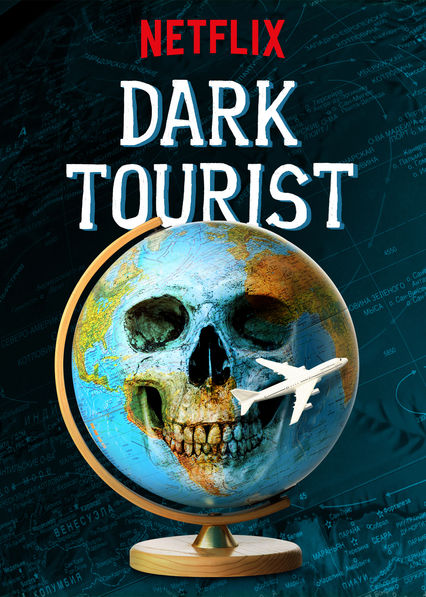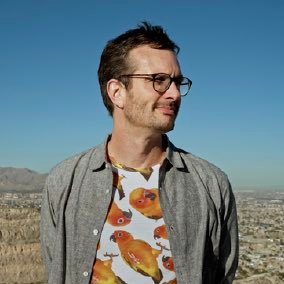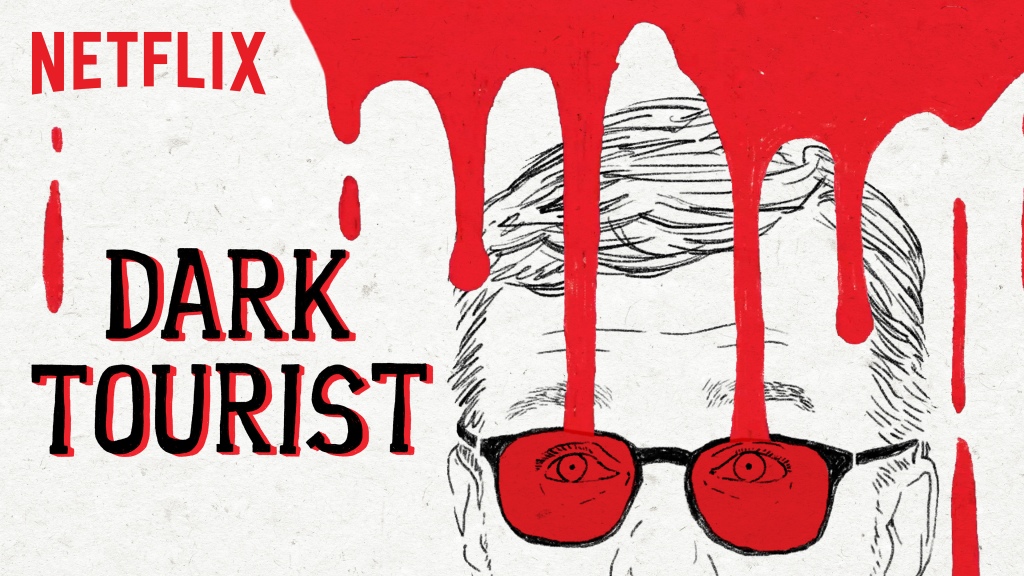Oftentimes we are aware of the unethical nature of something… yet to make the conscious choice to pry our eyes away can seem impossible. In fact, that is pretty much the whole premise of David Farrier’s show Dark Tourist. Farrier goes to different countries and regions in the world to explore the concept of dark tourism, although sometimes his concentration strays from the tourism itself and arrives at the actual content he is examining. As someone who is familiar with post-colonial studies and the brutal effects imperialization has had on countries exploited by the West, I do try to shy away from shows like this. How would you feel if your child’s naked body was being shown on a television show after they were systematically starved and tortured by your local government and the countries that gain power from economic exploitation? How would you feel if your country was summed up in the pictures of a disaster that’s legacy lies in the hands of a singular figure paid off by the CIA? Tourism, whether we like it or not, is a form of imperialization. And as someone who’s intensely interested in geography and geopolitics, it is also important to realize that these travel documentaries, magazines, journalists, these are people or organizations who also contribute to this system of imperialization. Yet it is so hard to find media that takes an anti-colonial and anti-imperial approach to documenting the cultures of other places that I often find myself embarrassingly checking Nat Geo or other groups that make money from the exploitation of countries that have been brutalized by colonialism. Perhaps this is my dark tourist moment.
I caved in and decided to watch Dark Tourists to see if this was finally a piece of media that was more anti-exploitation than the rest. While I certainly enjoyed parts of it, I am also writing this today because it ultimately wasn’t different. Whether it was casual moments where the word “communist” was automatically stigmatized and assigned to governments that were only in shambles because of the US government, or the poverty-porn of showing brown and black kids definitely without their parents’ consent, all of these were still present. There were moments like in South Africa where David didn’t push back at the violently racist people he was interviewing. And while it is undeniable that this is part of David’s strategy, to let the viewer see how blatantly wrong some of the people he was interviewing were, have we not learned through history that it is these moments where we cannot remain quiet? Silence only enables these groups. While we as viewers might understand their malice, how can a white guy like David not even push back a little? There are many other moments of immorality that happened but to not take up all of my time I will reference Sophie Gilbert’s review in The Atlantic linked here. She goes into the specifics of what moments fall flat and sums up my overall point by asking:
“Is that what dark tourism is? An opportunity for thrill-seeking, cash-privileged Westerners to feel better about their mundane lives by trawling through global hot spots of genocide, catastrophe, and authoritarianism?”
I also think a huge flaw of this show lies in the storytelling itself. Oftentimes the ethos of this show gets lost. While the principle of this show is to highlight places of “dark tourism”, David is often sucked up into the concept of the places themselves. Instead of examining why someone would go on a tour about a serial killer, David examines the serial killer himself. While this is certainly interesting, it gravitates away from the show’s premise and can make the overall cohesion fall flat. And while there is nothing I like more in a show than a routined pattern of events, 40 minutes was never enough time to examine the three different destinations David explores. While I applaud the show in their efforts to show a variety of places, I would rather have deeper connections be made with fewer locations.
David’s show reminded me in some ways of the late Anthony Bourdain. Yet where David falls flat in my opinion, is in recognizing the legacy of imperial brutalization, especially in his field of study: tourism and/or imperialization. This was a show that could have that difficult conversation but it didn’t. As much as I learned some great things I couldn’t help but think that the average person who perhaps isn’t extremely educated in post-colonial studies would unquestioningly trust David’s statements which were oftentimes western generalizations. I hope if there is a second season, David addresses this primary concern.
Lastly, this show begs me to question not only my own role as a tourist but my own role as a writer who is intensely interested in geopolitics. How do we tell stories of cultures and places that have been brutalized by imperial powers? How do we change our perception of a white-washed way of morality? At least, after watching this show, I have been forced to ask myself these questions.


